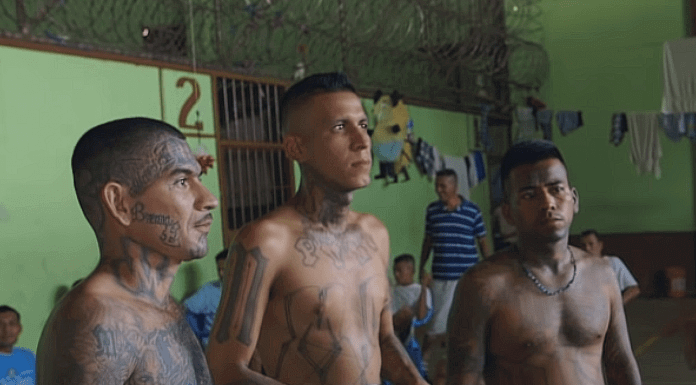(The Center Square) Congress has created several programs to allow illegal border crossers claiming to be minors to remain in the U.S. Despite years of documented abuse of the programs, Congress continues to fund them to the tune of billions of dollars.
One is the failed unaccompanied minor program, with decades of documented reports of abuse and neglect of children, The Center Square has reported. Another is the Special Immigrant Juvenile Petition (SIJP) program that allows illegal foreign national minors already involved in the juvenile court system to remain in the U.S. and obtain a pathway to citizenship.
For decades, the SIJP has been exploited by criminal actors to enable thousands of violent gang members and suspected terrorists to obtain lawful permanent resident (LPR) status and become U.S. citizens, the U.S. Citizenship and Immigration Services (USCIS) says in a new report, “Criminality, Gangs, and Program Integrity Concerns in Special Immigrant Juvenile Petitions.”
Instead of requiring that illegal foreign national minors be vetted, including conducting criminal background checks, locating and verifying family members, and implementing a repatriation process, Congress in 1990 established the SIJP process without any prohibitions. The primary requirement for a SIJP is for a state juvenile court to determine that the minor could not reunify with one or both parents due to abuse, neglect or abandonment.
Congress never included a prohibition for juveniles with criminal records or a moral character standard requirement.
Under current law, nearly all SIJP applicants are approved, allowing them to obtain lawful permanent resident (LPR) status and eventually U.S. citizenship.
The USCIS evaluated more than 300,000 SIJP applications filed between fiscal year 2013 through February 2025 and found that nearly 19,000 applicants had criminal arrests, including 120 for murder.
More than 500 were identified as known or suspected MS-13 gang members whose applications were approved; at least 70 had been charged with gang-related federal racketeering offenses.
At least 200 had been convicted of sex crimes and were registered in the National Sex Offender Registry.
From fiscal 2020 through 2024, 198,414 SIJP applications were approved. Among them, 52% weren’t even eligible because they were over age 18 and legally adults.
The overwhelming majority, 72%, were from Guatemala, El Salvador and Honduras, where cartels and gangs recruit young boys into a life of crime.
The USCIS report also found that many SIJP applicants were gotaways – those who illegally entered the U.S. to evade detection and didn’t file immigration claims. A record more than two million gotaways were reported under the Biden administration, The Center Square exclusively reported.
The USCIS also found that 853 SIJP applicants were known or suspected gang members. Instead of being processed for deportation, their SIJP applications were approved. More than 600 were identified as MS-13 gang members; more than 500 of their applications were approved.
More than 100 known or suspected members of the 18th Street gang, at least three Tren de Aragua members, and dozens of Sureños and Norteños gang members applied for SIJP and were approved.
Of the MS-13 gang member SIJP applicants, at least 70 had already been charged with federal racketeering offenses; many others were charged with having already committed violent crimes in the U.S., the report found.
Common claims made by SIJP applicants were they were sent to the U.S. to live with a relative, they lived a life of poverty in their home country, they didn’t know one of their parents, their parents mistreated them with no corroborating evidence, their applications were “rubber stamped” by state juvenile courts, and USCIS found a repeated pattern of age and identity fraud, including falsifying names, birth dates and citizenship.
In June, the Trump administration implemented a new policy, eliminating automatically considering deferred action (and related employment authorization) for SIJP applicants who were ineligible to apply for LPR status, among other measures.
The administration and Congress have not terminated the SIJP and continue to fund it.

